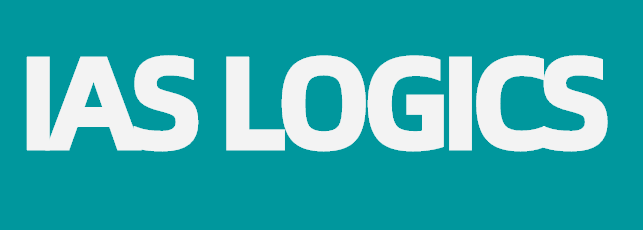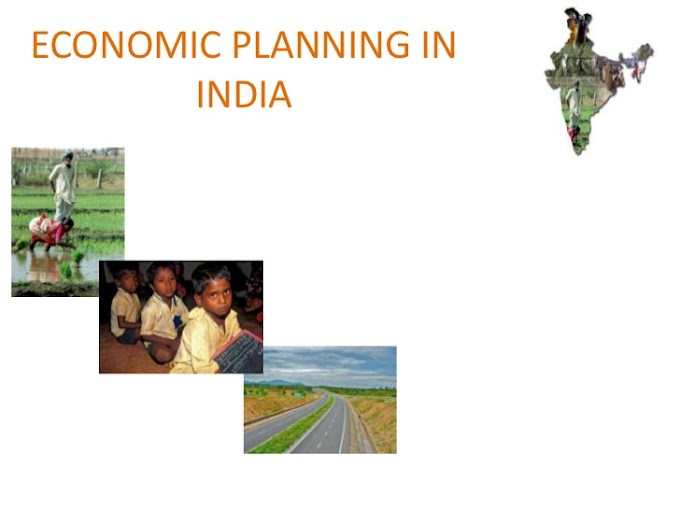Stands at the apex of the judicial system of India.
Consists of Chief Justice & 30 other judges.
Appointment
The senior most judge of the Supreme Court is appointed as the Chief Justice of India.
Other judges are appointed by the President after consultation with such judges of the Supreme Court and of the High Courts as the President may deem necessary.
In a landmark judgement, the Supreme Court in the “Supreme Court Advocates – on – Record Association vs. Union of India” case, 1993, held that the Chief Justice’s opinion in the appointment of the judges of the Supreme Court and in the appointment and transfer of the judges of the High Court shall enjoy primacy.
Supreme Court Judge Qualifications :
- Citizen of India.
- Have been a judge of High Court for 5 yrs or an advocate of High Court for 10 yrs minimum or in President’s view, a distinguished jurist of the country
Term & Salary
The Chief Justice & other judges hold office till 65 yrs of age.
- Can give resignation to President.
- Can be removed by the Parliament.
- After retirement, a judge of Supreme Court cannot plead or act before any authority.
Supreme Court Judge Salary :
- Chief Justice – Rs 1,00,000 per month
- Other Judges – Rs 90,000 per month
Removal of Judges
A motion seeking the removal of the judge can be preferred before either House of the Parliament. If it is to be introduced in the Lok Sabha, it should be signed in by not less than 100 members of the Lok Sabha.
If it is to be introduced in the Rajya Sabha, the motion should be signed in by not less than 50 members. The resolution should be supported by a majority of total membership of both the houses & by 2/3 majority of the members present & voting.
Other Points
The Chief Justice can appoint ad hoc judges in the Supreme Court after the consent of President; important aspect is they should be qualified to do so.
The Chief Justice, with the previous consent of the President, may request a retired Judge of the Supreme Court or a retired judge of a High Court who is duly qualified to be appointed as a judge of the Supreme Court, to sit and act as a judge of the Supreme Court.
Supreme Court normally sits in New Delhi. Can hold its meetings outside if the decision is taken by Chief Justice on consultation with the President.
Independence of Judges
The Constitution has ensured this by :
- Salaries from Consolidated Fund.
- Salaries cannot be changed to their disadvantage.
- Removal difficult.
- Cannot practice after retirement.
- Decision & actions of judges cannot be criticized & the person doing so can be punished.
- Conduct of judges cannot be discussed in Parliament.
- President cannot appoint judges of the Supreme Court himself, he has to consult the judges also.
Jurisdiction of the Supreme Court
a. Original Jurisdiction: The Supreme Court settles all disputes between Centre - State, State - State, etc.
b. Writ Jurisdiction: Every individual has the right to move the Supreme Court directly by appropriate proceedings for the enforcement of his Fundamental Rights.
c. Appellate Jurisdiction: It is three-fold:
1. Constitutional: In constitutional matters, an appeal lies to the Supreme Court if the High Court certifies that the case involves a substantial question of law as to the interpretation of the Constitution.
2. Civil: In civil cases, an appeal lies to the Supreme Court if a High Court certifies that the value of the subject matter of the dispute is not less than Rs.20,000 or that the case is fit for appeal to the Supreme Court.
3. Criminal: In criminal cases, an appeal lies to the Supreme Court if the High Court:
- Has on appeal reversed the order of acquittal of an accused and sentenced him to death; or
- Has withdrawn for trial before itself any case from any-subordinate court and has in such trial convicted the accused and sentenced him to death; or
- Certifies that the case is fit for appeal to the Supreme Court.
d. Advisory Jurisdiction: If the President seeks the advice of Supreme Court, it is duty bound to give its opinion. (Its opinion isn't a binding on President).
e. Revisory Jurisdiction: The Supreme Court under Article 137 is empowered to review any judgement or order made by it with a view to removing any mistake or error that might have crept in the judgement or order.
f. It is a court of record as its decisions are of evidentiary value & cannot be questioned in any court.
g. The Supreme Court also enjoys the power of judicial review as it can ensure that the laws passed by legislature and orders issued by the executive do not contravene any provision of the Constitution
h. The Supreme Court decides disputes regarding the election of the President and the Vice President
i. The Supreme Court recommends the removal of members of UPSC to the President.
Public Interest Litigation
Any member of the public can now initiate a proceeding on behalf of the aggrieved person (esp. if the person is too poor or unable to move the court on his or her own) in either the High Court or the Supreme Court for enforcement of constitutional rights.
A destitute citizen can file a writ petition even through a simple letter written on a postcard.
This derives from the 'right to be heard' as implied by Article 32.
Cognizance of public litigation cases' by the Supreme Court has added a new dimension to its role.
Each State has a High Court; it is the highest judicial organ of the State. However, there can be a common High Court like Punjab, Haryana & Union Territory of Chandigarh.
Presently there are 21 High Courts in India. Consists of Chief Justice & other such judges as appointed by the President.
The Constitution, unlike in the case of the Supreme Court, does not fix any maximum number of judges for a High Court. A judge of a High Court can be transferred to another High Court without his consent by the President.
In this, the Chief Justice of India is also consulted. The opinion provided by him shall have primacy and is binding on the President.
Appointment of Judges
The appointment of Chief Justice is made after consultation with the Chief Justice of Supreme Court & the Governor of the State by the President.
In case of appointment of a Judge, the Chief Justice of the High Court concerned is also consulted in addition to Chief Justice of Supreme Court & Governor of the State concerned.
On Oct 6, 1993, the Constitution bench of Supreme Court held that the opinion of Chief Justice (of the concerned High Court & the Supreme Court) will be given priority in both the appointment as well as transfer of senior judges.
Jurisdiction and Seats of High Courts
| Name | Estd. In the Year | Territorial Jurisdiction | Seat |
| Allahabad | 1866 | Uttar Pradesh | Allahabad (Bench at Lucknow) |
| Andhra Pradesh | 1954 | Andhra Pradesh | Hyderabad |
| Mumbai | 1862 | Maharashtra, Dadra and Nagar Haveli, Goa, Daman and Diu | Mumbai (Bench at Nagpur, Panaji and Aurangabad) |
| Kolkata | 1862 | West Bengal and Andaman and Nicobar | Kolkata (Circuit Bench at Port Blair) |
| Delhi | 1966 | Delhi | Delhi |
| Guwahati | 1948 | Assam, Manipur, Meghalaya, Nagaland, Tripura, Mizoram and Arunachal Pradesh | Guwahati (Bench at Kohima and Circuit Benches at Imphal, Agartala & Shillong) |
| Gujarat | 1960 | Gujarat | Ahmedabad |
| Himachal Pradesh | 1971 | Himachal Pradesh | Shimla |
| Jammu & Kashmir | 1957 | J & K | Srinagar and Jammu |
| Karnataka | 1884 | Karnataka | Bangalore |
| Kerala | 1956 | Kerala and Lakshadweep | Ernakulam |
| Madhya Pradesh | 1956 | Madhya Pradesh | Jabalpur (Benches at Gwalior and Indore) |
| Chennai | 1862 | Tamil Nadu and Pondicherry | Chennai |
| Orissa | 1948 | Orissa | Cuttack |
| Patna | 1916 | Bihar | Patna |
| Punjab & Haryana | 1966 | Punjab, Haryana and Chandigarh | Chandigarh |
| Rajasthan | 1950 | Rajasthan | Jodhpur (Bench at Jaipur) |
| Sikkim | 1975 | Sikkim | Gangtok |
| Bilaspur | 2000 | Chhattisgarh | Bilaspur |
| Nainital | 2000 | Uttarakhand | Nainital |
| Ranchi | 2000 | Jharkhand | Ranchi |
Judges Qualifications:
- Must be a citizen of India.
- Should have been an advocate of a High Court or of two such Courts in succession for at least 10 yrs; or should have held judicial office in Indian for a period of at least 10 yrs.
Term & Salary
A judge of High Court continues his office till 62 yrs of age. Term can be cut short due to resignation or removal by the President.
Salary : Chief Justice – Rs 90,000 per month; Other Judges – Rs 80,000 per month
Removal
The President can remove a judge of High Court only if the Parliament passes the resolution by a 2/3 majority of its members present & voting in each house.
The conduct of the judges of the High Court cannot be discussed in Parliament, except on a motion for the removal of a judge.
Restriction on Legal Practice
The judge of a High Court is not allowed to practice law before the authority of the same court except the Supreme Court & any other High Court.
Jurisdiction of High Court
- Court of record & has power to punish for its contempt.
- Under Article 226, the High Courts are given powers of issuing writs for the enforcement of Fundamental Rights and for other purposes. The jurisdiction to issue writs under this Article is larger for High Courts as compared to the Supreme Court because whereas the Supreme Court can issue them only where a Fundamental Right has been infringed, a High Court can issue them not only in such cases but also where an ordinary legal right has been infringed.
- Supervises the working of all subordinate courts & frames rules & regulations for the transaction of business. It can examine the records of subordinate courts.
Subordinate Courts
Judiciary in States consists of a High Court and subordinate courts. The organization of the Subordinate Courts throughout the country is generally uniform.
There are two types of law courts in every district – Civil and Criminal Courts. They function under the superintendence and control of the High Court of that particular state.
The highest civil court in a district is the court of the District Judge. The court decides civil and criminal cases. When the judge decides civil cases, he is called the District Judge and when he deals with the Criminal Cases, he is called the Session Judge.
The District Judge is appointed by the Governor in consultation with the Chief Justice of the High Court. He hears the appeals against the decision of the sub – judges.
Besides the District Court, there are courts of sub – judges, munsiff courts and courts of small causes. Below the Session Courts are the courts of First Class Magistrates.
In Metropolitan cities like Kolkata, Chennai, Mumbai and Delhi, these Magistrates are known as Metropolitan Magistrates. Apart from this, there are courts of Second Class and Third Class Magistrates also.





